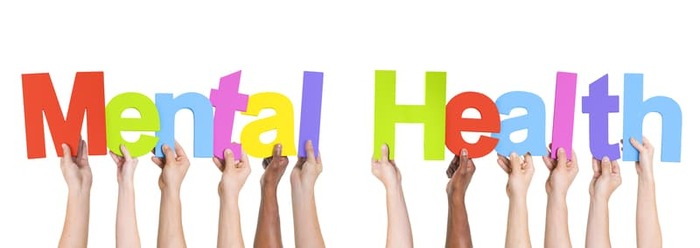- Calls to this hotline are currently being directed to Within Health or Eating Disorder Solutions
- Representatives are standing by 24/7 to help answer your questions
- All calls are confidential and HIPAA compliant
- There is no obligation or cost to call
- Eating Disorder Hope does not receive any commissions or fees dependent upon which provider you select
- Additional treatment providers are located on our directory or samhsa.gov
The Pandemic’s Effect on the Mental Health of Those Who Have Eating Disorders

Contributor: Staff at Timberline Knolls Residential Treatment Center
The COVID-19 pandemic has been difficult on everyone’s mental health, presenting times of increased stress, fear, and anxiety. For those who have an eating disorder, the effect of the pandemic may be even greater, making it challenging to remain in recovery.
The Pandemic’s Effect on Mental Health
The pandemic brought feelings of fear, stress, and uncertainty, with isolation becoming necessary for everyone’s safety. Many struggled with the fear of illness, the death of a loved one, or the loss of a job. Children, adolescents, and teenagers had to adapt to drastic changes in how they attended school and socialized with friends. These factors led to an increase in mental health concerns, especially in those who already struggled with their mental health.
One study found that during the pandemic, more than 25% of high school students reported worsened mental health, and more than 20% of parents who had children ages 5-12 reported that their children had worsened mental health [1]. By the end of 2020, more than 56% of young adults ages 18-24 reported symptoms of anxiety and/or depression [2].
For those who have an eating disorder, increased mental health concerns are a major trigger for symptoms. One study on patients who had eating disorders found that 74% reported an increase in eating disorder thoughts during the pandemic [3]. Additionally, 77% of patients reported feelings of anxiety, 73% reported depression, and 80% reported feelings of isolation related to the pandemic. Nearly one-third of eating disorder patients reported a decrease in motivation to recover [3].
How the Pandemic Contributed to Eating Disorder Symptoms
Along with increased mental health concerns, the pandemic caused a rise in several potential eating disorder triggers.
At the beginning of the pandemic, food scarcity was a big fear, causing many individuals to stockpile food in their homes. Because not much was known about how COVID-19 spreads, some feared that their groceries could even be contaminated and spent time ensuring that everything was disinfected first. These negative feelings about food and having more food than usual in the home can be triggering for those who already struggle with eating disorder symptoms.
Advertisement
Call Timberline Knolls for Help 888-206-1175
Another factor that contributed to worsened eating disorder symptoms is increased time on social media. For most of the pandemic, socializing in person, and leaving the house in general, was unsafe. As people spent more time indoors, they also spent more time online and on social media apps like Instagram and TikTok. These apps can be harmful to those in eating disorder recovery because it is easy to see messages about weight loss, excessive dieting, and body shaming. Social media can also be filled with images of the “ideal” body, making it especially difficult for young girls not to compare themselves to others.
The stress of the pandemic also caused many to gain weight, which can be very triggering for someone who has an eating disorder. Weight loss and dieting programs capitalized on the fear of weight gain, using terms like the COVID-19 and quarantine 15 to refer to weight gain during the pandemic. Weight gain is expected during times of extreme stress. But for those who have an eating disorder, weight gain can trigger behaviors like calorie restricting, excessive exercising, and purging.
Additionally, the pandemic took away individuals’ support systems and increased their isolation. Many college students didn’t return to campus, participate in sports or clubs, or see their friends for months. Adults may have lost their jobs or had to work from home. With more isolation and fewer distractions, mental health concerns can worsen.
Achieving Recovery During the Pandemic
The future of the pandemic remains uncertain, and, although the situation may have improved since the start of the pandemic, mental health and eating disorder concerns still linger.
Finding and remaining in recovery during the pandemic can be challenging. There are some things you or your child can do to ensure long-term recovery even during the pandemic, including:
- Limit social media use
- Hide content that may be triggering
- Eat a healthy, balanced diet
- Maintain a regular routine
- Stay connected with friends and family
- Practice stress management techniques like meditation
- Focus on the things you can control
- Find support groups and community resources
If you are struggling with your mental health and worsened eating disorder symptoms, help is available.
References:
[1] Panchal, N., Kamal, R., Cox, C., Garfield, R., & Chidambaram, P. (May 26, 2021). Mental health and substance use consideration among children during the COVID-19 pandemic. Kaiser Family Foundation. https://www.kff.org/coronavirus-covid-19/issue-brief/mental-health-and-substance-use-considerations-among-children-during-the-covid-19-pandemic/ [2] Panchal, N., Kamal, R., Cox, C., & Garfield, R. (February 10, 2021). The implications of COVID-19 for mental health and substance use. Kaiser Family Foundation. https://www.kff.org/coronavirus-covid-19/issue-brief/the-implications-of-covid-19-for-mental-health-and-substance-use/ [3] Vitagliano, J.A., Jhe, G., Milliren, C.E., . . . Richmond, T.K. (July 2, 2021). COVID-19 and eating disorder and mental health concerns in patients with eating disorders. Journal of Eating Disorders, 9(80). https://doi.org/10.1186/s40337-021-00437-1About Timberline Knolls
 At Timberline Knolls Residential Treatment Center, located outside of Chicago, Illinois, we provide specialized care for women and girls who are living with mental health disorders. Our private facility offers female-only treatment programs for eating disorders, addiction, and a range of mental health conditions. We work closely with each person to develop treatment goals to maximize strengths while focusing on individual needs. Our treatment team understands that each woman has unique needs and that she must play a role in her journey to wellness.
At Timberline Knolls Residential Treatment Center, located outside of Chicago, Illinois, we provide specialized care for women and girls who are living with mental health disorders. Our private facility offers female-only treatment programs for eating disorders, addiction, and a range of mental health conditions. We work closely with each person to develop treatment goals to maximize strengths while focusing on individual needs. Our treatment team understands that each woman has unique needs and that she must play a role in her journey to wellness.
The opinions and views of our guest contributors are shared to provide a broad perspective of eating disorders. These are not necessarily the views of Eating Disorder Hope, but an effort to offer a discussion of various issues by different concerned individuals.
We at Eating Disorder Hope understand that eating disorders result from a combination of environmental and genetic factors. If you or a loved one are suffering from an eating disorder, please know that there is hope for you, and seek immediate professional help.
Published on September 7, 2021. Published on EatingDisorderHope.com
Reviewed & Approved on September 7, 2021 by Jacquelyn Ekern, MS, LPC


